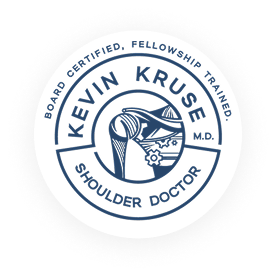Can you wait too long to have Rotator Cuff Repair Surgery?
Timing Rotator Cuff Repair Surgery: Understanding the Risks of Waiting
The Question of Delaying Surgery
A frequent concern among patients with rotator cuff tears is whether waiting too long for repair surgery could lead to irreversible damage. The complexity of this issue lies in the nature of the tear itself.
Small vs. Large Tears: A Different Approach
- Small Tears (1 cm with Minimal Retraction): These can often be observed over time with minimal risk.
- Large Tears (2-3 cm with Retraction): The analogy of the rotator cuff as an accordion is useful here. If the ‘accordion’ is shortened, it becomes increasingly difficult to extend it back. Prolonged shortening might lead to a point where it cannot be extended, necessitating more urgent surgical intervention.
The Importance of Specialist Evaluation
The decision to proceed with surgery should be made with a shoulder surgery specialist. These are nuanced cases, and a tailored approach is needed. Sometimes patients feel rushed into surgery when it might not be immediately necessary, while others with larger tears might not receive adequate counsel on the urgency of their situation.
Individual Variability in Rotator Cuff Tears
Every patient and every tear is unique – like snowflakes. For those with smaller tears who are experiencing pain but are uncertain about surgery, the advice is to monitor the condition. However, a significant increase in pain or weakness should prompt immediate re-evaluation, as small tears can gradually enlarge.
The Risk of Delaying Treatment
Delaying surgery, especially for larger tears, can lead to irreversible fatty atrophy in the rotator cuff muscles. Once this stage is reached, surgical intervention becomes less effective. It’s crucial to find a balance between avoiding unnecessary surgery and addressing a tear before it reaches a point of irreparability.
Making an Informed Decision
Patients should seek a specialist who not only understands the complexities of rotator cuff tears but also respects the patient’s autonomy in decision-making. The conversation about whether to proceed with surgery is nuanced and should be had with a specialist well-versed in shoulder conditions.

